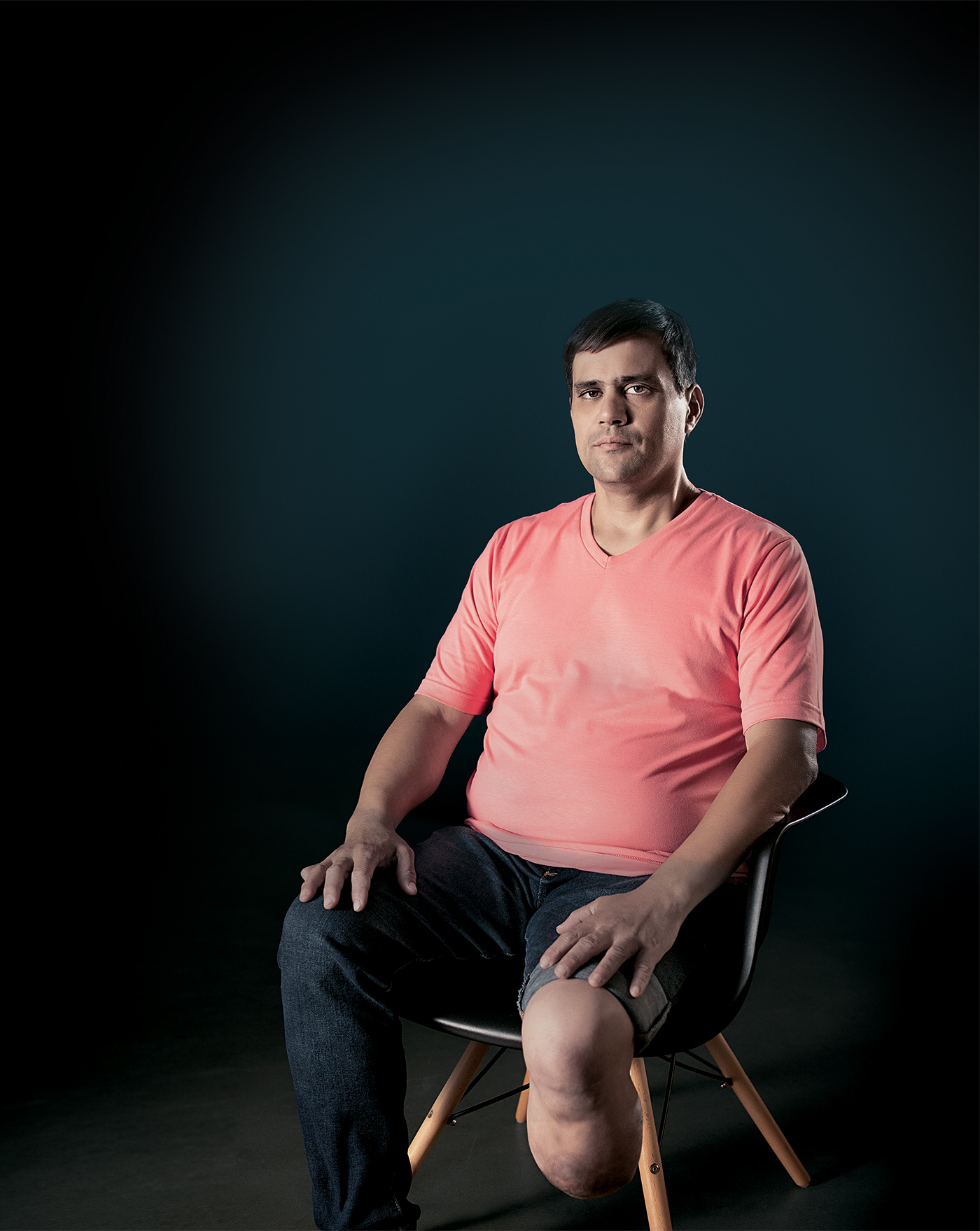Fabiano Luder is 42 and lives in Curitiba, a beautiful city in the south of Brazil known for its extraordinary botanical garden and dynamic architecture. Unfortunately, Fabiano’s ability to enjoy all that his city has to offer became more difficult when, in 2010, he was diagnosed with type-2 diabetes. It wasn’t long before his condition led to serious complications. Shortly after, he was diagnosed with polyneuropathy (characterized by a lack of strength in the limbs), osteomyelitis (infection in the bones) and diabetic retinopathy in the eyes. In the ensuing years, he has undergone four amputations related to his condition.
“The cause of my diabetes,” Fabiano said, “was basically my diet at the time. With clearer information on food labels, perhaps my life would be different.”
Fabiano chose to tell his story as part of a series of powerful, personal testimonial advertisements in a campaign to support the implementation of clear, front-of-pack nutritional warning labels in Brazil.
The cause of my diabetes was basically my diet at the time. With clearer information on food labels, perhaps my life would be different.
Without change, many more people will suffer a fate similar to Fabiano. Obesity is a growing health problem: Over half of the country’s population is overweight or obese, including 1 in every 3 children between 5-9 years old. Consumption of unhealthy foods and sugary drinks is contributing to that burden of overweight or obesity, and related noncommunicable diseases like diabetes, heart disease, cancer and other diseases.
The “Right to Know” campaign features testimonials from type-2 diabetes patients, hypertension patients, young people, parents, and doctors, whose experiences, knowledge and concerns will resonate with policymakers and the public.
The people featured in the campaign support a black triangle warning label, proposed by the Brazilian Institute for Consumer Rights (Idec) and the Alliance for Adequate and Healthy Eating. “No one can know what an industrialized product contains unless this information is clearly placed in its labels,” said Professor Carlos Augusto Monteiro, the Professor of the Nutrition Department of the School of Public Health, Universidade de São Paulo.
The black triangle model is currently under consideration by Anvisa (the National Agency for Sanitary Surveillance, the government organization responsible for the food regulation). This is a pivotal moment to help move Brazil one step forward to stop the obesity epidemic in Brazil.
